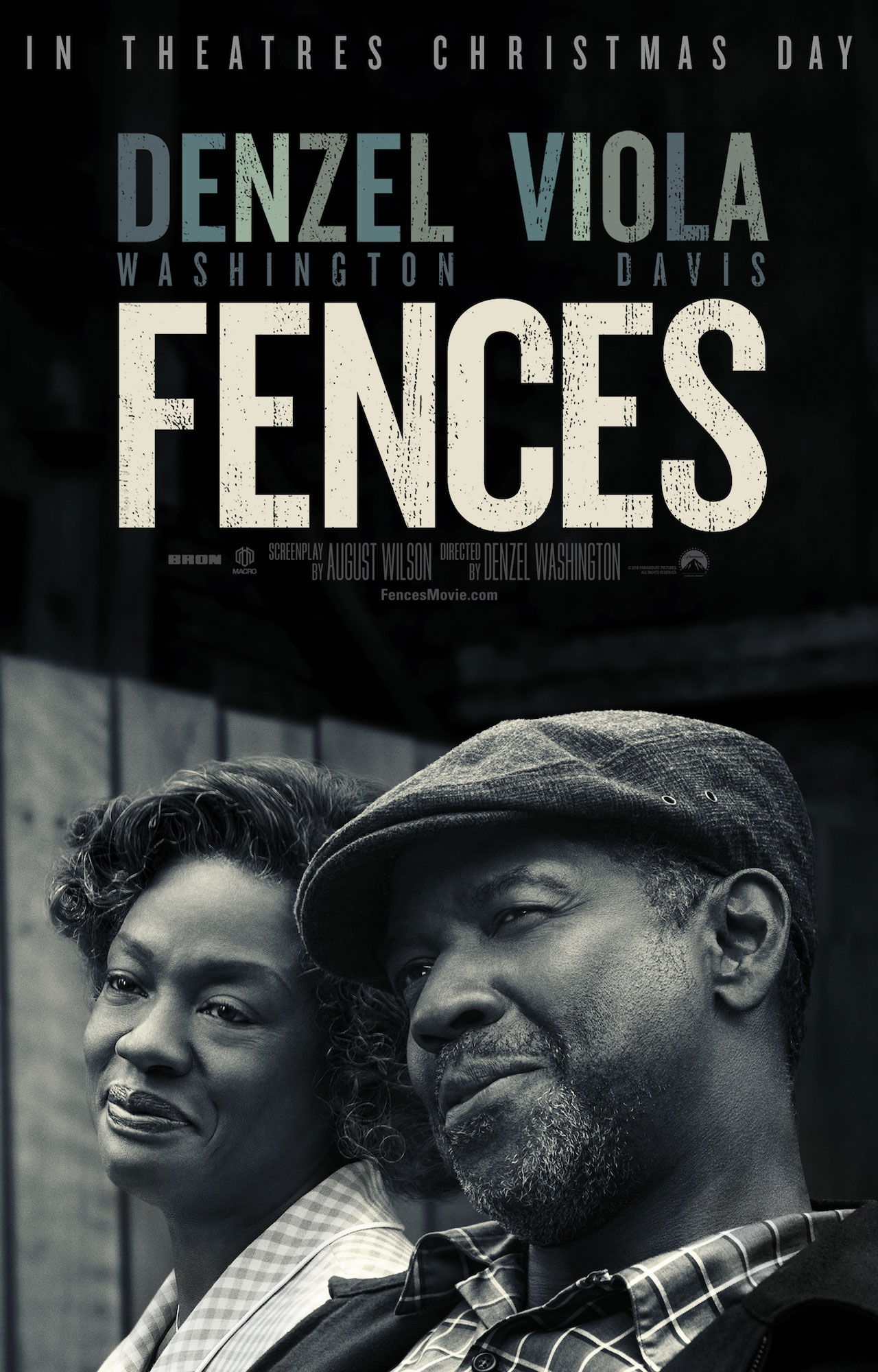Back in 2010 Denzel Washington and Viola Davis trod the boards for three months in a Broadway revival of August Wilson’s Pulitzer-winning play Fences. Both won Tonys for their performances, and the revival itself won the top prize, too. Now Washington, working from Wilson’s own screenplay (which he had drafted before his death in 2005), has returned to 1950s Pittsburgh once again, directing the film version and bringing most of the revival’s cast along for the ride, too.
Washington stars as Troy Maxson, a garbage man living with his wife Rose (Davis) as they bring up their teen-aged son Cory (Jovan Adepo, the only new face among the show’s leads). Troy also has a grown son, Lyons (Russell Hornsby), from a previous marriage, and living just down the street is Troy’s brain-damaged brother Gabe (Mykelti Williamson).
As the film begins Troy and his friend and co-worker Bono (Stephen Henderson) are perched on the back of a trash truck lamenting their collective lives. It’s a simple conversation about nothing in particular, as if we had just happened to pull up behind the truck ourselves and overhead the conversation from out of our car window. And that one moment sets the tone for the entire film; this isn’t an action-driven movie of events, it’s a movie about people talking, as they deal with various things in their lives, whether it’s poverty, civil rights, or struggles at the office. Fences, more than anything else, shows us the power of Wilson’s phenomenal writing talent, and it’s compounded by perhaps the best collection of on-screen talent this year.
Washington leads the way, showing us Troy’s blistering personality through his stories about glory-days baseball in the Negro Leagues (as he professes that Jackie Robinson and Hank Aaron “ain’t nothin’”) or during an early confrontation with Lyons when he comes by the house looking to borrow ten bucks. Troy is a cynical, jaded man, clouded by a life un-lived, and as much as he contends that he wants a different life for Cory, all we see is Troy’s puffed chest as he declines to even tell his son that he likes him as a person. (“It’s my duty to take care of you. I owe a responsibility to you. I ain’t got to like you!”) It’s a powerful, telling moment, and in Washington’s expert hands, it’s even more so.
Davis, for her part, more than holds her own in a performance that’s being shopped around the awards circuit as a supporting role, but it’s every bit the lead that Washington’s is. The chemistry the pair shares is at times heart-stopping in its believability, but it’s also brutally complex. Barely a half-hour into Fences you’ll find yourself wondering how this woman could continue to live with Troy, while at the same time you marvel at her honesty and devotion.
Washington directs the film with a firm resolve to just stay out of the way and let the top-shelf performances (including his own) and Wilson’s brilliant script take center stage. In fact the film, more often than not, feels like it’s still a play as the actors wander around the backyard and take a few swigs of gin. With the exception of two or three quick scenes, the entirety of the film is set in and around the Maxson home, giving Fences an air of intimacy and helping the audience feel as if they themselves have been invited to have a sit-down alongside Troy and Cory.
Fences is dark, moving, and intense all at once while also being punctuated by little moments of quiet humor. It’s a fascinating character study and a textbook example of how sometimes less is more. Every so often we are reminded of the remarkable ability that words have to move us, particularly when they’re spoken by some of the most talented actors at work today.
Rating
5/5 stars
